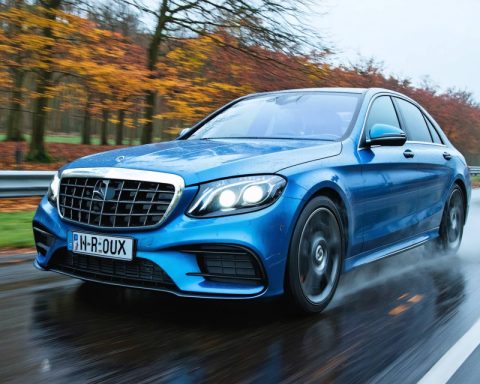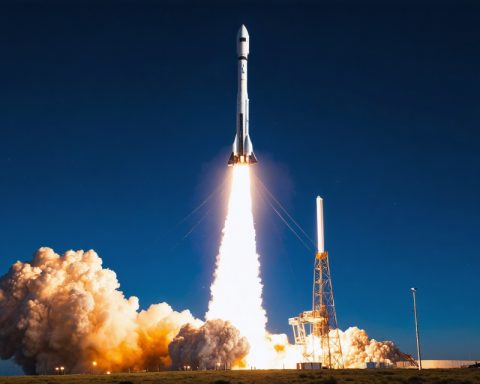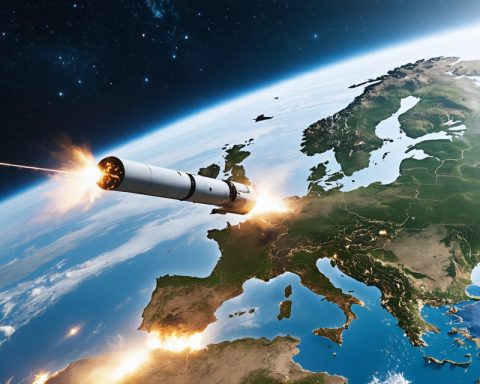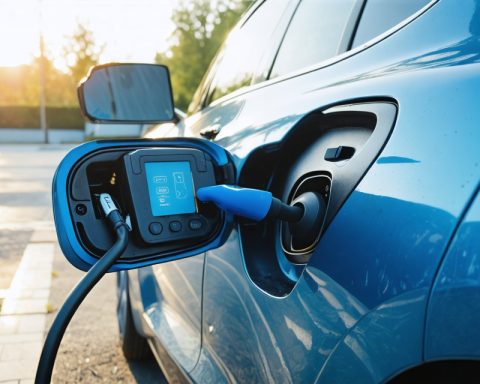- Ben Kennedy, a NASCAR Executive, experienced a thrilling ride in an F-16 fighter jet with the U.S. Air Force Thunderbirds, combining the worlds of racing and aerobatics.
- The flight highlighted the adrenaline rush and the power of G-forces, offering a new form of speed and excitement beyond that of stock cars.
- The event showcased a shared appreciation of speed, skill, and precision among Kennedy, his family, and the Thunderbirds crew.
- Lt. Col. Taylor “Flash” Wright presented Kennedy with a commemorative photo, symbolizing the connection between NASCAR and the Thunderbirds.
- Kennedy’s experience underscored the courage needed to embrace new adventures, emphasizing that the thrill lies in the journey, not just the destination.
A gleaming F-16 fighter jet, emblazoned with the insignia of the U.S. Air Force Thunderbirds, roared across the tarmac. Inside, NASCAR Executive Ben Kennedy sat strapped into the back seat, helmet secured, a wide grin stretched across his face. As the engine’s growl intensified, Kennedy prepared for a new kind of speed, one that even the roar of a stock car couldn’t match.
Saturday marked a convergence of high-octane worlds, where the thrill of racing met the majesty of aerobatics. As the F-16 soared skyward, cutting through the crisp February air with unbridled power, Kennedy experienced the rush of G-forces, his adrenaline soaring higher than the jet itself. Below him, the runway shrank to a thin line, a stark reminder of the sheer altitude the Thunderbirds routinely embrace.
On the ground, his family and the Thunderbirds crew watched, sharing Kennedy’s excitement from a distance. Their cheers and supportive smiles echoed the unspoken bond between those who understand the pursuit of speed, skill, and precision.
After the flight, Kennedy emerged from the cockpit, his eyes alight with the exhilaration of the experience. Upon touching down, Lt. Col. Taylor “Flash” Wright presented him with a commemorative photo—an emblem of the day’s memories and the unity between two distinct yet wonderfully aligned worlds.
In a life centered around speed and precision, Kennedy’s venture into the sky with the Thunderbirds served as a potent reminder that the thrill of the race is not just about the track or the finish line. It is about the courage to embrace new experiences, to soar to unfamiliar heights, and to find joy in every heartbeat of the journey.
The Ultimate Speed Experience: F-16 Thunderbirds Meet NASCAR’s High-Octane World
How-To Steps & Life Hacks: Preparing for an F-16 Flight
For those inspired to take a flight in an aircraft like the F-16, preparation is key:
1. Health Check: Ensure you meet the physical requirements. Pilots and passengers undergo medical evaluations to withstand high G-forces.
2. Gear Up: You’ll need a flight suit and helmet. Check with your provider on what is supplied or required.
3. Understand G-Forces: Learn the Anti-G Straining Maneuver (AGSM) to maintain consciousness during high G-force turns.
4. Pre-flight Briefing: Pay attention to protocols, emergency procedures, and communication signals from experienced staff and pilots.
5. Stay Calm and Hydrated: Manage adrenaline and excitement by staying hydrated and calm before flight—a critical tactic shared by experts.
Real-World Use Cases: F-16 and NASCAR
While the worlds of F-16 jets and NASCAR might seem disparate, parallels exist:
– Skill Transfer: Both demand precision and focus. NASCAR drivers, like Ben Kennedy, may find valuable skills transferable between cockpit and driver’s seat.
– Adrenaline and Audience: Both industries captivate audiences with thrilling displays of speed and maneuverability, highlighting the human potential for extreme precision.
Market Forecasts & Industry Trends
– Aviation Tourism: The experience market involving aircraft like F-16s is growing, with clients seeking thrilling experiences.
– NASCAR Innovations: Technological advancements in aerodynamics and safety continue to shape NASCAR’s evolution.
Reviews & Comparisons
– F-16 vs. NASCAR Stock Cars:
– Speed: F-16 can reach speeds up to 1,500 mph compared to NASCAR’s 200 mph.
– G-Forces: Fighter jets like the F-16 can exert over 9 Gs, while NASCARs rarely exceed 3 Gs in turns.
Controversies & Limitations
– Accessibility: Flights in aircraft like the F-16 are limited by availability and cost—exclusive experiences rather than commonplace offerings.
– Environmental Concerns: Fighter jets have significant carbon footprints compared to hybrid NASCAR initiatives aiming to reduce emissions.
Features, Specs & Pricing
– F-16:
– Engine: General Electric F110, providing over 29,000 pounds of thrust.
– Unit Cost: Approximately $30 million per plane.
– NASCAR Stock Car:
– Engine: V8 engine producing around 750 horsepower.
– Cost: Estimated around $400,000 per car.
Security & Sustainability
– Safety Measures: Both industries prioritize safety. The F-16 has robust ejection systems, while NASCAR employs the HANS Device and SAFER barriers.
Insights & Predictions
– Integration: Expect continued blending of technologies between aerospace and racing to enhance safety and performance.
– Experience Economy: Demand for unique experiences like high-speed flights is expected to rise.
Tutorials & Compatibility
– Simulations for Practice: Before attempting real flights, simulation training offers a safe environment to experience similar thrills.
Pros & Cons Overview
– Pros:
– Unmatched experience of speed and exhilaration.
– Transfer of skills between precision-demanding fields.
– Cons:
– Cost-prohibitive for average enthusiasts.
– Limited opportunity and accessibility to the public.
Actionable Recommendations
– For Thrill-Seekers: Investigate local aviation experiences or racing school offerings for an introductory taste of high-speed excitement.
– Mind the Budget: Set financial goals if such experiences are on your bucket list—savings plans can make dreams attainable in time.
– Stay Informed: Follow innovations in both industries for potential opportunities to engage with new technologies.
For more on aviation and racing, visit NASCAR or US Air Force.







